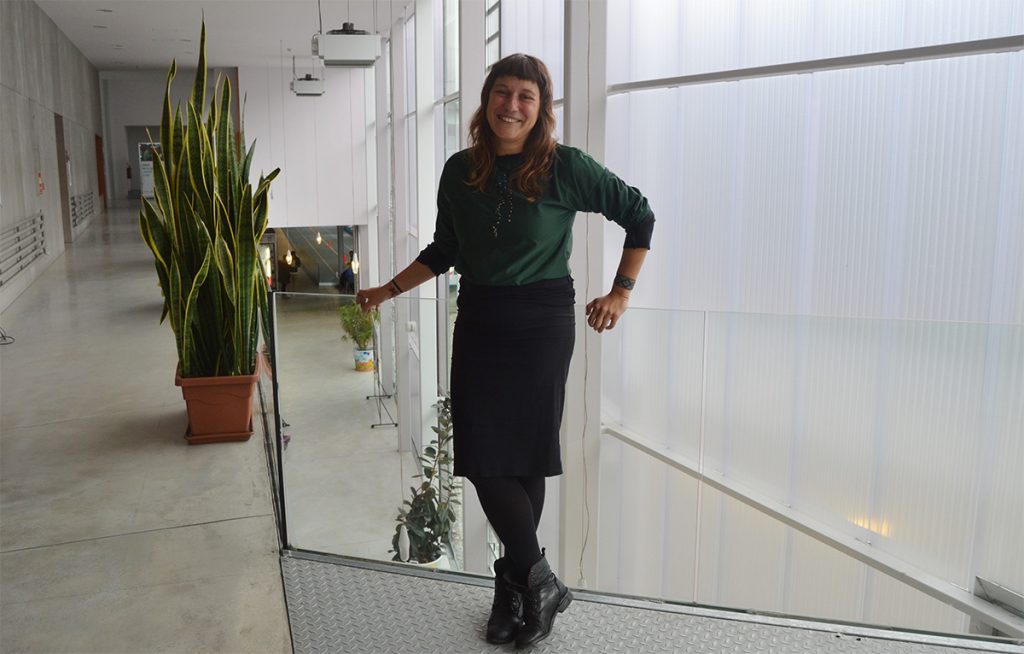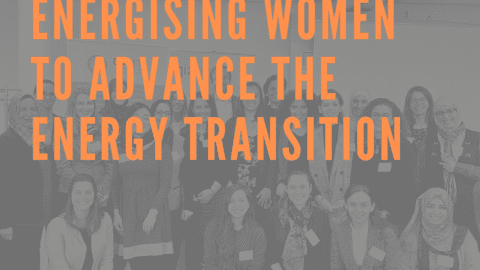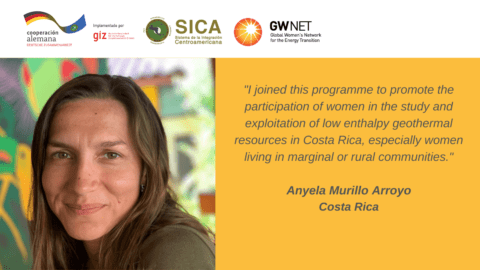GWNET brings you the 13th instalment of the “Meet the Women in the Energy Transition” series which celebrates the work and achievements of the women who are part of GWNET’s 2/2019 Mentoring Programme. This mentoring programme contains 22 mentee-mentor tandems, with mentees from over 15 countries. Meet GWNET mentee, Sonia Ramos Galdo. Sonia is a sustainable energy engineer with extensive knowledge of technological innovations and market frameworks. As an ISENER Consultant, she gives technical advice to companies and public administrations on energy policy and energy management. Her main achievements in the last 14 years include carrying out energy audits in industrial companies, obtaining potential savings between 15% and 20%. She has developed solar photovoltaic facilities in Spain involving over 3 MWp capacity and has designed PV facilities for two towns in Egypt. With ISF-Apd (ONGAWA) in Mozambique, she helped provide basic energy services to 18 health centres which gave access to healthcare to over 180,000 people.
1) Tell us a little about yourself. What do you love most about what you do?
I am an energy efficiency and sustainable energy engineer with 14 years’ experience in the Spanish energy market and energy access programmes in countries like Egypt, Angola and Mozambique. In 2017 I received the Certified Energy Manager title from the Association of Energy Engineers. My professional mission is to facilitate the transition towards a socially and environmentally sustainable energy model. It should be more decentralised, clean, affordable, and efficient in order to achieve SDG 7. I find this work extremely rewarding with clear impacts that reduce the GHG emissions and transform organisations, business and people’s lives in different countries. That is what I love most about what I do.
2) What were your goals when you started working in sustainable energy? Have these evolved?
In 2005, after finishing my Master’s Degree in Industrial Engineering and a Postgraduate degree in Human Development engineering applications, my goal was to develop my career in the developing solar photovoltaic sector. It evolved when I became aware of the great potential of this technology and realised that there were different barriers to get over in order to develop this sector. Then my goals grew bigger. They are not only about technology – they have grown to include awareness raising, training, political advocacy and R&D.
Image credits: Eduardo Muñiz - Gabinete de prensa da Universidade de Vigo – campus de Pontevedra
3) What are the opportunities for sustainable energy growth in your country?
Renewable and sustainable technologies, due to their potential to tackle climate change, are growing exponentially and irreversibly worldwide. Spain cannot remain oblivious to this fact. However, the inheritance of an energy policy tied by the oligopolistic conditions of the national market is, once again, influencing the development of this technology, restricting its unprecedented potential to achieve real sustainable development – not only in environmental terms, but also in social terms, reducing social and territorial inequalities.
4) What challenges have you faced in the sector? Can you tell us how you overcame (or are overcoming) these challenges?
Every day I face a wide range of challenges in this sector: the difficulty of finding job opportunities that allow me to balance work and my personal life; the difficulty of raising awareness about the current climate emergency; the difficulty of developing R&D studies that meet the particular needs of women in developing contexts; as well as other important challenges of the territories in which, sometimes, my work is developed. I have overcome them with passion, effort and resilience.
One of the most difficult situations that I overcame was adapting to work in post-conflict Angola. I arrived only 6 years after the end of the armed conflict. It was hard to find my place. This experience tested my empathy, my tolerance and my ability to overcome difficulties. I did it through active listening of social needs, questioning my fears, and getting free of numerous prejudices and preconceptions. This experience has given me the courage and capacity to take risks, and has bolstered my fortitude, adaptability, perseverance, maturity and ambition in my personal and professional development.

5) Why did you join the GWNET Mentorship Programme? What do you hope to achieve?
I joined the GWNET Mentoring Programme because I want to learn, build connections and get the support of other strong and ambitious women in the energy sector who are used to overcoming similar challenges. I believe that networks of like-minded people reinforce all members and accelerate the achievement of shared goals.
6) What advice would you give to women hoping to join the sustainable energy sector?
Define your goals, set your limits, don’t forget your values and trust yourself. An exciting and meaningful career awaits you, as well as an opportunity to build a better future, as rewarding as it is demanding.
Image credits: Eduardo Muñiz - Gabinete de prensa da Universidade de Vigo – campus de Pontevedra Featured Image credits: Helena Barker.
If you are interested in knowing more about GWNET’s mentoring programmes, this comprehensive article outlines our work in this area.













